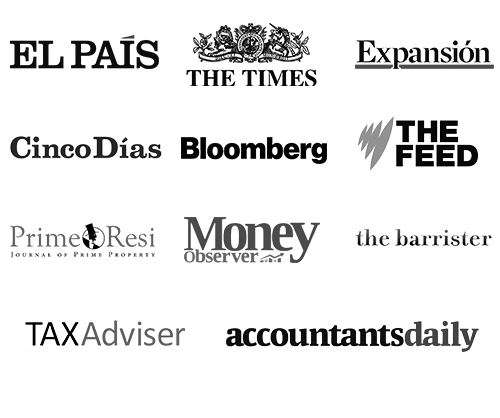Del Canto Chambers: Universal jurisdiction and self-regulation to tackle tax fraud
Our Managing Partner, León Fernando del Canto, has published an opinion piece in the Financial Instruments Tax & Accounting Review magazine in which he bets for applying universal jurisdiction principles and CDPs for tax professionals in order to effectively fight against international tax fraud.
“Life after the Panama Papers”
“León Fernando del Canto discusses some of the international taxation implications in the wake of the data leak earlier this year.
Stories relating to ‘Panama Papers’ have spread like wildfire across the media since documents from law firm Mossack Fonseca were leaked in April 2016, but the focus has not been on the most important issue: what this really means for international taxation law.
The legal implications resulting from Panama Papers-related scandals are becoming clearer: the latest is that the British Virgin islands’ Financial Service Commission (FSC) has fined the Panamanian law firm the largest penalty it has ever issued: $440,000. However, this fine is relatively low considering the magnitude of the firm’s operations and the financial scale of the companies under management. Business will continue as usual, maintaining its operating license in the Virgin Islands.
Over half of the 240,000 shell companies represented by Mossack Fonsecca were established in the British Virgin Islands. In addition to their money laundering activities in other jurisdictions, eight other legal breaches were detected by the law firm.
It was concluded by the British Virgin Islands’ Financial Services Commission that directors failed not only to exercise compliance control in order to prevent money laundering, they also did not exercise due diligence, thereby putting their clients’ assets and business transactions at risk.
Imposing a fine on a company rarely does much to help this kind of situation. To enforce a firm’s tax avoidance control, some tax advisers have asked the British government to extend its tax investigations into the Overseas Territories and Crown Dependencies.
Meanwhile, the British government has created the Panama Papers Taskforce, a cross-agency unit created to investigate the ‘Panama leaks’, which has led to 22 people who were directly related to this scandal being subjugated to civil and criminal reviews, and 43 high net worth individuals being under investigation.
Furthermore, the Financial Conduct Authority and the National Crime Agency are jointly conducting eight Serious Fraud Office enquiries which have identified 26 offshore companies and contacted many more.
Across the globe countries are taking action against international tax avoidance issues thrown up by the Panama Papers; Venezuelan authorities have arrested a representative of Mossack Fonseca at the centre of the scandal on accusations of seeking clients interested in investing ‘illicit’ funds; similarly, in Australia it has been revealed that more than $2.5 billion of offshore funds are linked to the 1,000 Australians identified in the Panama Papers; and France is conducting up to 560 tax inspections against various French companies relating to the scandal.
International authorities such as the Organisation for Economic Co-operation and Development and the European Union are in the process of modifying the whole structure around international taxation and regulation. With the Base Erosion and Project Shifting plan, the OECD and the EU are actively involved in initiatives that tax fraud. The European Commission’s inquiry into the European Parliament recently released a report where up to 12 recommendations against international tax fraud were listed.
The issue lies in the fact that not enough is being done to tackle international tax evasion. In order to successfully manage this, the principles of universal jurisdiction would need to be adopted internally. The issues that need to be tackled involved the fact that there is a lack of common interest on an international scale as to the principles of universal jurisdiction. Were these principles applied to international tax avoidance, affected states would then be able to prosecute evaders worldwide as the other countries would immediately accept its jurisdiction.
The fact that these states do not have a common definition of what defines ‘tax avoidance’ means that international prosecution and police investigations are made extremely difficult because there needs to be a clear definition of what defines a crime according to International Public Law. This then creates a grey area, making it a kind of ‘tax haven’ for evaders. The ability to effectively combine states and interstate organisations is what holds the key to winning the battle against tax evasion.
The issue around international tax law needs to be addressed. While lawyers and auditors are for the most part well-regulated and recognised professionals and the principles by which they abide are widely recognised on an international level. However, there is a group of international tax advisers who are very loosely regulated internationally and apart from the UK there are only a small number of professional organisations for international tax advisers, and they all have varying criteria for admission, CPDs and ethics. A universal code of ethics and professional standards should therefore be agreed to regulate the international tax advisory profession globally.
The necessity to regulate the independence of media outlets and investigative journalism is a final issue worth addressing. With regards to Panama Papers, the vast majority of reporting was focused on celebrity stories as opposed to focussing in on the issue of tackling international tax avoidance. The majority of leaked documents were outdated and not even relevant to the perspective of criminal prosecution”.





